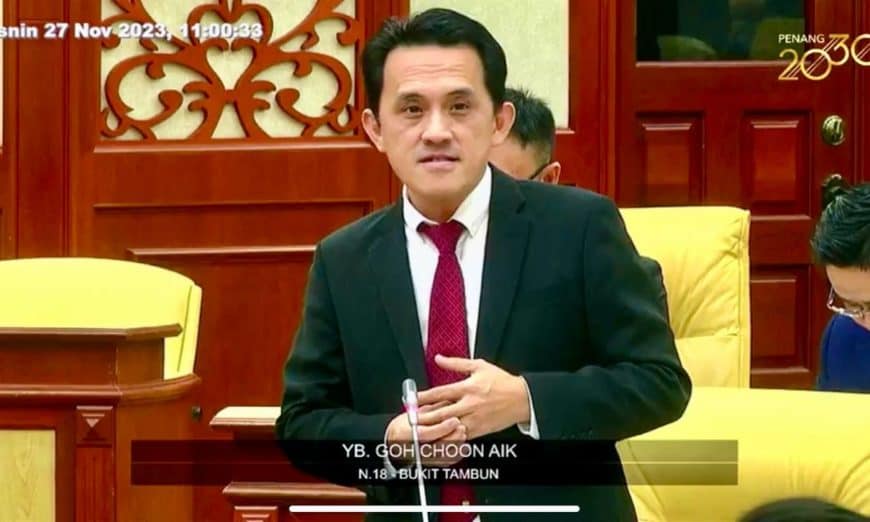A STATE representative in Penang has urged the Federal Government to increase allocations for Penang.
Goh Choon Aik (PH – Bukit Tambun) emphasised the need for additional funds to address traffic congestions, flash floods and water issues through vital infrastructure projects.
“Based on the Penang Budget 2024 that was tabled last week by Chief Minister Chow Kon Yeow, the state government has projected revenue of only RM533.08 million.
“Meanwhile, the proposed Penang development budget for 2024 is only RM374 million. This also shows that the state government’s budget is so ‘poor’ and even lower than the development budget of a university.
“What worries us is that the 2024 Budget is expected to suffer a deficit of RM514.53 million. This shortfall will be covered by tapping into the state government’s reserves, including the Consolidated Trust Account, which has a balance of RM1.67 billion as of Nov 15 this year.
“This means that the state’s Consolidated Trust Account will be eventually depleted if the state government continues to table deficit budgets in the coming years.
“Thus, all of this proved that Penang is not a rich state. And we need the Federal Government to play its part by assisting Penang with a larger allocation for the state,” Goh said when debating the Budget during the State Legislative Assembly today.
Goh also urged the state government to explore new sources of income for Penang.
He suggested diversifying Penang’s income sources, proposing initiatives like opening new industrial land by Penang Development Corporation (PDC) through public-private partnerships and finding new alternative energy to reduce electricity bills in government agencies.
He also advocated for an open tender Request for Proposal (RFP) for developing state-owned islands, such as Pulau Aman, Pulau Jerejak, Pulau Gedung and Pulau Kendi as potential tourism revenue generators.
Goh also touched on the RM205.90 million that is allocated for emoluments under the 2024 Budget operating allocation.
“This is quite high considering we are now living in the digital era where various state agencies have already embrace digitalisation in their services.
“So I think, it is time for the state government to do the restructuring of various positions in the public sector and remove any position that is no longer relevant.
“At the same time, civil servants also need to be exposed to digital knowledge through appropriate training and courses.
“This, in turn, will increase their digital literacy, fostering increased competitiveness and multi-tasking. Simultaneously, it has the potential to curtail the necessity of recruiting new employees into the government sector,” he said.
Story by Riadz Akmal

